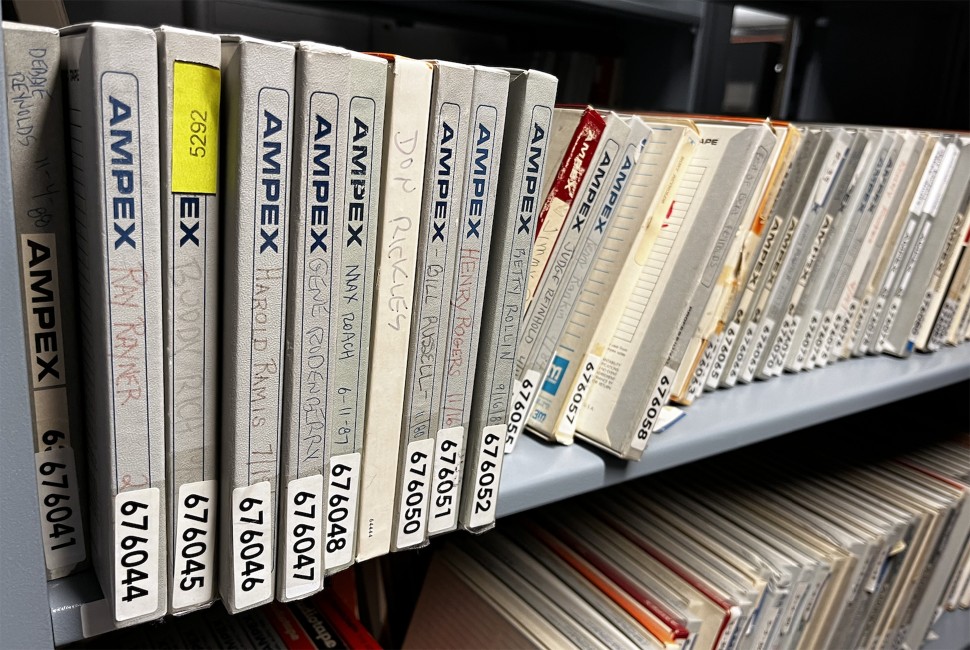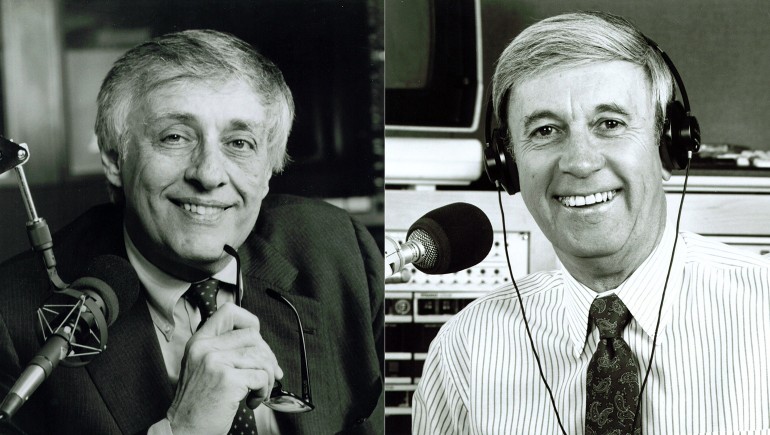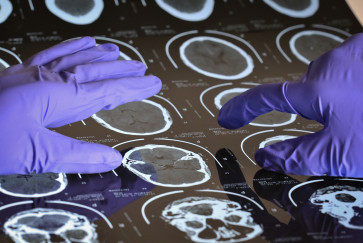For 100 years, WGN Radio has been a source of all-talk programming that has connected Chicagoland — and well beyond, thanks to the impressive broadcast range of the 50,000-watt station at 720 AM. Its lineup of memorable hosts, long-running cultural programming and avid local sports coverage has enshrined WGN Radio as a cherished companion for generations of listeners in cars and kitchens.
Thanks to a gift from Nexstar Media Group, Inc., parent company of WGN Radio, a 70-year swath of the radio station’s audio archive now resides at Northwestern University Libraries in the Charles Deering McCormick Library of Special Collections and University Archives.
Chicago history and WGN’s most popular voices
The archive, with materials covering 1941 to 2011, includes more than 15,000 items, primarily magnetic media (open reel tapes, compact cassettes, continuous-loop “carts,” U-matic videocassettes and VHS tapes) as well as other media such as grooved discs, CDs and minidiscs. The bulk of the audio dates to the 1980s and 1990s, a period of innovation and surging popularity for the station.
The archive contains thousands of hours of audio that will need to be cataloged and, where necessary, digitally preserved before they can be made publicly available, said Scott Krafft, curator of Special Collections at Northwestern.
“It’s a remarkable collection that represents a significant sampling of Chicago history, including local and national news,” he said. “In addition, the voices of WGN Radio’s most popular programs are represented here, making this an important archive for the history of the entire field of radio broadcasting.”
“Given the long and storied connection between WGN Radio and Northwestern University, it is most fitting that this audio collection, drawn out of 70 years of our broadcast history, will be under their care,” said Mary Sandberg Boyle, vice president and general manager of WGN Radio. “While digitizing it will be a substantial undertaking for the Northwestern Libraries, ultimately, this will be a permanent and invaluable repository and resource for years to come. We trust their expertise and are proud they are the caretakers in this endeavor.”
“The WGN Radio archive will provide a laboratory for future researchers looking at 20th century media as it intersected with Chicago’s cultural and political history.” — Sarah Pritchard, dean of Northwestern Libraries
Preserving an audio archive, to say nothing of just listening to it, poses a particular challenge to a cultural heritage institution, Krafft said. For example, magnetic media like audio tape is notoriously unstable. Tapes relay information by storing patterns of magnetic particles on an acetate or polyester base; over time such materials can break down on their own, even in the ideal climate-controlled storage libraries can provide.
In addition, the archive contains other fragile media like glass “transcription discs,” a radio recording solution common during World War II. The lacquer coating on such discs can separate from the glass over time, a process called “delamination,” after which the recording is lost. Couple these issues with the obsolescence and precarity of aging playback equipment, and even listening to analog audio can be a challenge.
“Navigating the preservation of this archive will take time,” Krafft said. “But in the end, it will be worth it to preserve the cultural record represented by WGN Radio.”



